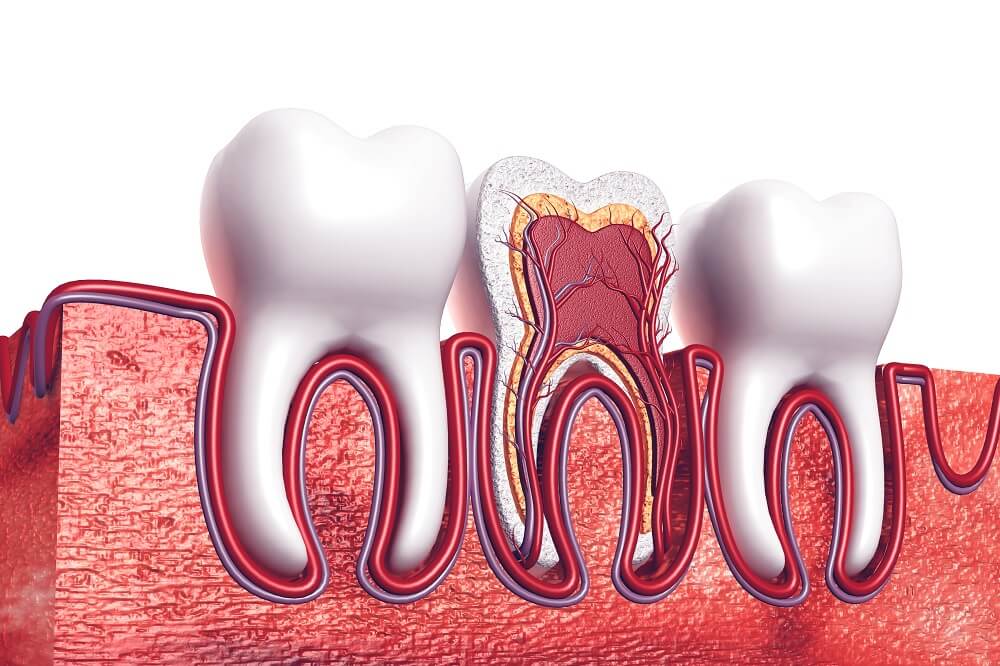When most people hear the words root canal, they instantly think of pain, discomfort, or an expensive dental procedure. But in reality, root canal treatment is a safe, effective, and often pain-relieving procedure designed to save a badly damaged or infected tooth. Unfortunately, myths and misconceptions around root canals have created unnecessary fear. This article clears up common myths with facts you should know before considering treatment.
A root canal is a dental procedure that removes infected or damaged pulp (the soft tissue inside the tooth) to prevent further infection and save the natural tooth.
The process typically involves:
- Numbing the tooth with local anesthesia.
- Removing the infected pulp.
- Cleaning and disinfecting the inside of the tooth.
- Filling and sealing the tooth with a protective material.
- Placing a crown for strength and function.
Fact: Modern root canal procedures are no more painful than getting a dental filling. With anesthesia and advanced technology, most patients feel little to no discomfort during the treatment.
Fact: Saving your natural tooth through a root canal is almost always better than extraction. Natural teeth help maintain proper chewing, speech, and jawbone health. Extractions often require replacements like implants or bridges, which can be more costly.
Fact: This myth stems from outdated research from nearly a century ago. Today, root canals are safe, effective, and have no link to systemic illnesses. In fact, leaving an infected tooth untreated poses a much greater health risk.
Fact: While some complex cases may need more than one visit, most root canals can be completed in a single appointment, especially with advanced dental equipment.
Fact: With proper care, a tooth treated with a root canal and crown can last a lifetime. Good oral hygiene and regular dental visits are key to long-term success.
Fact: Root canals are generally more affordable than extracting and replacing a tooth with a dental implant or bridge. In the long run, saving your natural tooth is cost-effective and beneficial for oral health.
- Saves your natural tooth
- Prevents the spread of infection
- Relieves pain and discomfort
- Restores chewing and biting function
- Improves overall oral health
| Myth | Fact |
|---|---|
| Root canals are painful | Modern treatment is virtually painless with anesthesia |
| Extraction is better | Saving the natural tooth is healthier and more cost-effective |
| Root canals cause illness | No scientific evidence supports this claim |
| Treatment always takes multiple visits | Most can be completed in a single appointment |
| Root canals don’t last long | With proper care, they can last a lifetime |
| They are too expensive | More affordable than replacing a missing tooth |
Root canal treatment is one of the most misunderstood dental procedures. Far from being painful or risky, it is a safe, effective, and often life-saving treatment for teeth affected by severe decay or infection. By understanding the facts and ignoring outdated myths, patients can make informed decisions that benefit their long-term oral health. If your dentist recommends a root canal, remember—it’s usually the best option for saving your natural smile.
1. Does a root canal hurt?
No. With local anesthesia, most patients experience little to no pain during the procedure.
2. How long does a root canal take?
Usually 60–90 minutes. Some cases may require a second visit.
3. Can I eat after a root canal?
Yes, but it’s best to wait until the numbness wears off and stick to soft foods for a day or two.
4. How much does a root canal cost?
The cost depends on the tooth and complexity but is generally less expensive than tooth extraction and replacement.
5. Do root canals weaken teeth?
After treatment, the tooth is restored with a crown, which makes it strong and functional again.
6. How long does a root canal last?
With proper care, it can last for decades or even a lifetime.
7. Can all teeth be saved with a root canal?
Most can, but in severe cases of damage or bone loss, extraction may be necessary.
8. Is a crown always needed after a root canal?
Yes, for most back teeth. Front teeth may not always need crowns if they’re structurally sound.
9. Can a root canal fail?
Rarely. But if infection returns, retreatment or an apicoectomy may be required.
10. What happens if I avoid a root canal?
The infection can spread, leading to severe pain, abscesses, and even tooth loss.
